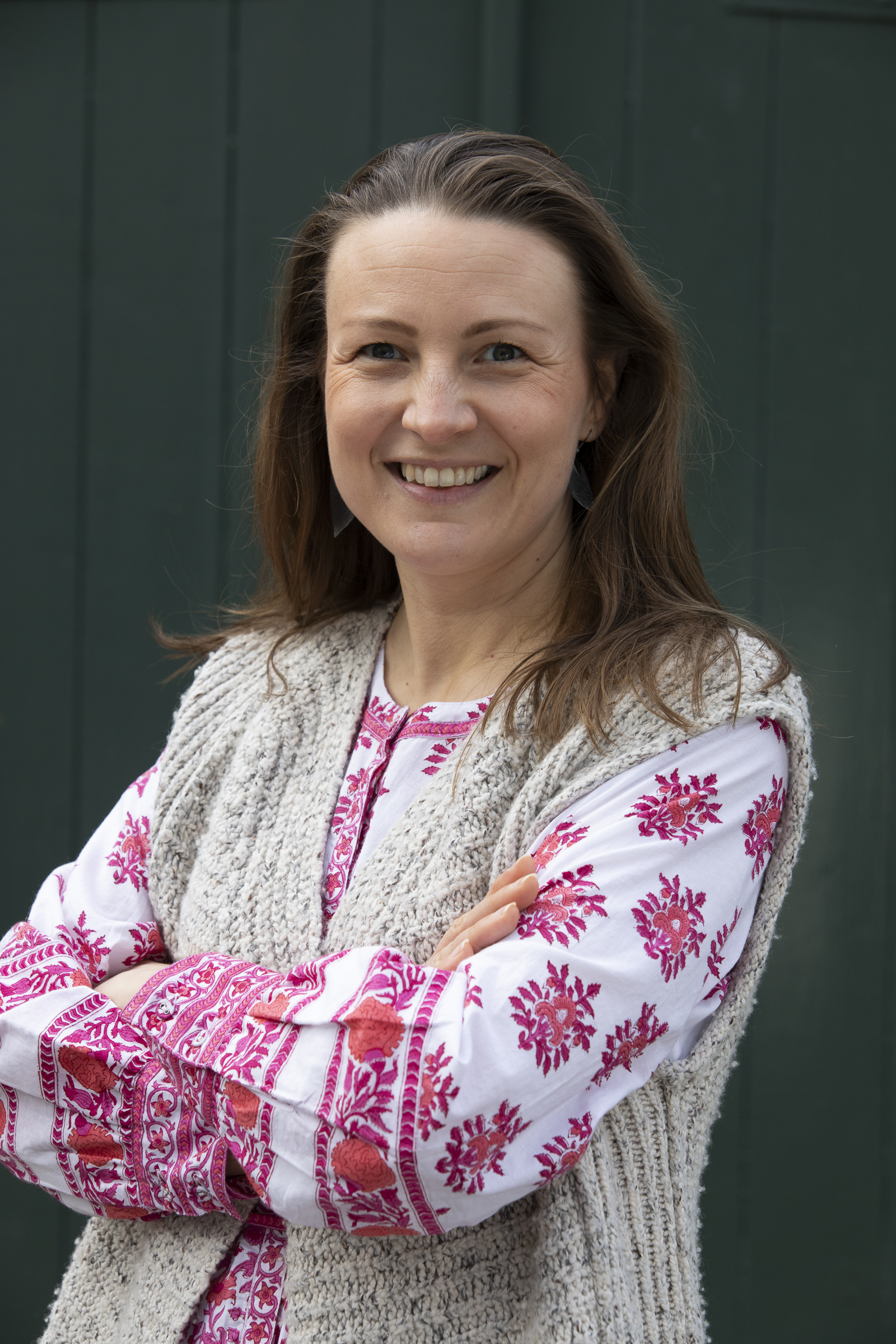
19 Apr A Sense of Direction – Samantha Lane
Samantha Lane remembers the moment she realised she wanted to work in the performing arts. She was thirteen – or around that age, she says – and a touring show visited her high school.
“It was called Too Much Punch For Judy and it was about drink-driving,” Lane says. “It was the first time I’d ever seen live theatre, and I remember thinking, ‘I want to do this, I want to do this, I want to do this.’ It was just four actors with chairs in my school hall but it was such a moving experience. It literally made me cry.”
Fast forward three decades, and Lane is now providing that inspirational first experience of theatre for thousands of young people herself. She is artistic director of Little Angel Theatre, a small, 100-seat venue in Islington, founded in 1961, and dedicated to producing puppet theatre shows and workshops for children, both in its building and in the local community.
“There are a couple of reasons,” Lane says, when asked why she wants to make work for young audiences. “Firstly, I knew how much that first experience of theatre had moved me, and I wanted to have that impact in the same way. And, secondly, I just love the sense of innocence and playfulness that comes with creating work for children. I’m very lucky. It’s a job where I get to play all the time.”
***
Lane grew up Kent. She rarely went to the theatre as a child – her dad ran a plant nursery and her mum was a legal secretary, and theatre was simply not part of their lives – but fell in love with it at school, through drama classes, and through that touring production of Too Much Punch For Judy. At first, Lane wanted to be on stage herself.
“Like everyone, I wanted to be an actor,” she says. “I went to the University of Warwick to study theatre and performance, then wasn’t sure what to do once I’d graduated. I ended up teaching drama in Singapore for a year, then returned to the UK, emailed about 25 schools, and got a job as a drama teacher back in Kent. I always knew I wanted to do something else, though.”
Lane left teaching in 2002 to become education and outreach manager at the Queen’s Theatre Hornchurch, then spent several years – including one in Canada – as a freelance project manager and workshop facilitator. She completed an MA in text and performance at King’s College London, did a brief stint at the Victoria and Albert Museum, then worked for eight years as the Almeida Theatre’s director of projects, leaving in 2015 to take up her current post.
During Lane’s tenure, the Little Angel Theatre has gone from strength to strength, expanding its output, increasing its turnover, creating more co-productions, and opening a new studio nearby hosting workshops and activities for audiences and artists alike. The venue even thrived – artistically, if not financially – during lockdown, with Ian Nicholson and Sam Wilde’s online adaptation of Jon Klassen’s I Want My Hat Back viewed more than 750,000 times. An in-person version of that show is at the centre of the theatre’s current season.
***
“I’m running a building, and I do have the responsibilities that come with that,” Lane says. “We are not a National Portfolio Organisation, so our programming here has to be a real balance between what is popular and going to get bums on seats, and what is a little more risky. With all of our shows, though, it comes down to the story, and how that story speaks to the children in the audience.”
“Is it interesting?” she continues. “Is it engaging? Is it going to speak to them on a level that isn’t just farts and silly jokes? What I feel really strongly about, though, is that what we make is not didactic. Our shows tackle some big issues – Jenny Worton’s Prince Charming was about anxiety, Piers Torday’s There May Be A Castle involved the central character dying – but they don’t shove those issues down the audience’s throat. They wrap them up in joyful, gorgeous, imaginative stories.”
There is perhaps a perception in the wider industry that work made for young audiences is not as artistically adventurous or professionally fulfilling as work made for adults, but that is simply not the case, continues Lane. Whether it is experimenting with digital theatre or producing site-specific shows, children’s theatre can be cutting edge. In fact, an audience of toddlers can be the toughest crowd of all.
“Grown-ups are polite,” she says. “If they don’t enjoy a show, they might roll their eyes or send a complaint afterwards, but that’s about it. If kids aren’t enjoying your show, you know it. I think more theatremakers should challenge themselves to make work for children. If you can engage kids and keep them entertained and gripped, then you can do anything, right?”
—
Samantha Lane was talking to Fergus Morgan for SDUK.
